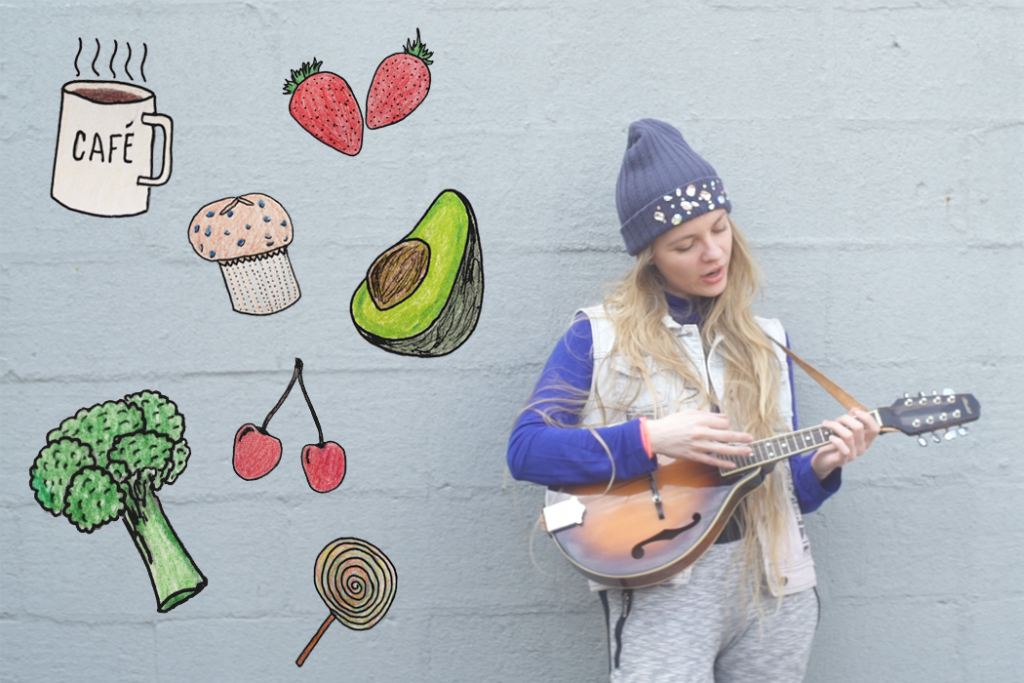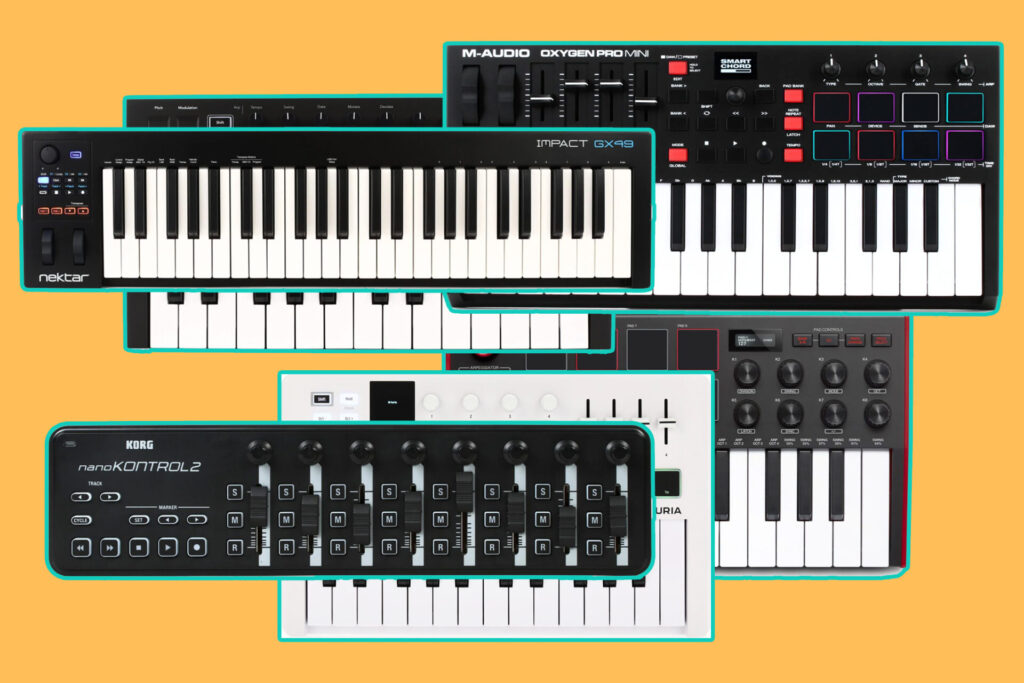+ Learn from Grammy-winning pop artist Kimbra how to harness the full creative potential of your voice in song. Check out her course.
Singing utilizes muscle movements and contractions in your diaphragm, voice box, mouth, and sometimes even your extremities in a highly controlled way. Although the movements are on a much smaller scale than, say, when you’re running or doing push-ups, you still have to take care of your voice and body in order to sing out your best, especially if you’re on the road for weeks.
You already know that your body requires fuel — a.k.a. food — to perform. But which foods are going to help you sing your best and which ones could actually harm your vocal abilities?
We’re going to find out below.
And for all you singing producers out there, check out Soundfly’s online course with Grammy-winning artist Kimbra, in which she demystifies her variety of vocal techniques and the creative inspirations behind her most beloved songs. Go check out this awe-inspiring new course, Kimbra: Vocal Creativity, Arranging, and Production.
What NOT to Eat
As David Leigh (an opera singer at the New York Metropolitan) puts it, knowing what to eat before a show actually has a lot more to do with knowing what you shouldn’t eat. There are in fact, very few foods out there that actually help your vocal cords. Most foods either hinder them or simply have little to no effect. Some singers eliminate this stuff from their diets altogether. If you’re not feeling that extreme, you could just stay away from these foods the day of your performance.

Here are the items you should not ingest under 3 hours before your show or session:
Milk, yogurt, cheese, and other dairy
I know, I’m sorry. Cheese is the best. But dairy in general is difficult for the body to break down. It’s a big no-no before your show. In many cases, it causes acid reflux that can creep up your esophagus and burn your vocal cords. In all cases, it tends to cling to everything in your throat, thickening the mucus that’s already present. This super-mucus (yum) inhibits your flexibility and makes you want to clear your throat more often. Not cute.
Processed sugar
Overly sugary foods do you no favors. You’ll want to stay away from candy, juice, Nutella, gummy snacks, and other overly processed sugary foods. Like dairy, sugar tends to hang around in your mouth and throat as phlegmy grossness (scientific word, y’all). Sugar without fiber or protein to balance it out can also cause you to wear out very quickly once the sugar rush has passed. It will zap the energy right out of your beautiful voice.
Caffeine
Caffeine is a diuretic, meaning it makes you urinate more often and dehydrates you. It also really dries out your vocal folds. Your voice needs to stay lubricated in order to work well. Caffeine messes with your mucus production and dries you out. In addition to that mess, it also tends to constrict your muscles — when your muscles are tight in your throat, it puts unnecessary, damaging stress on your vocal cords. You’ll want to stay away from coffee and caffeinated teas before performances.
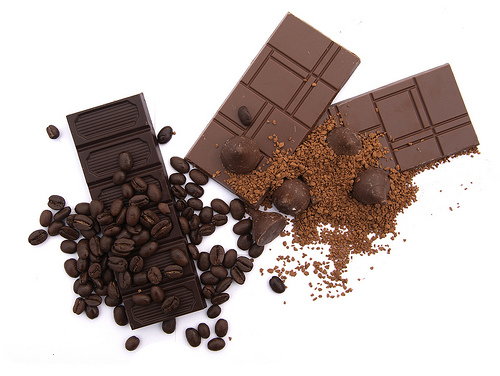
Chocolate
Chocolate is a triple threat. It naturally contains caffeine, which will dry you out and constrict the muscles around your vocal cords. It’s also an acid reflux trigger. And, chocolate usually contains a lot of sugar. Pass on this guy till after the show.
Fried foods
Anything that has been deep-fried or prepared in a lot of oil tends to gunk up your vocal cords with too much fat. Fried food is also another heartburn trigger — you don’t want indigestion right before a show!
Butter
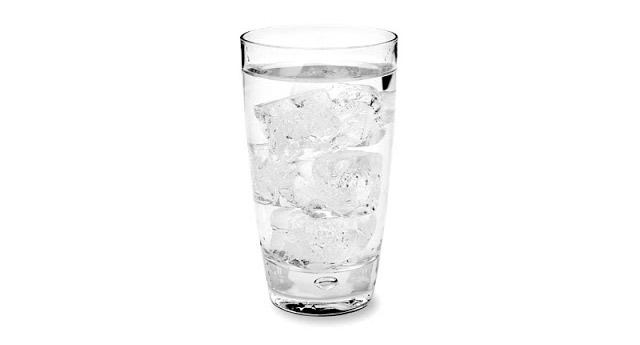
Like fried food, butter is oily and tends to grease up your throat. It’s also a dairy product, so it can cause a thickening of the mucus that’s already present in your throat.
Ice water
Arguably the best way to enjoy a glass of water is after it’s been half frozen in the freezer, through a big curly straw, and with a generous portion of ice cubes. But drinks that are too cold (or too hot) have an adverse effect on your voice. They constrict the muscles in your throat, leading to unnecessary stress and loss of flexibility.
Soda
A double whammy — soda is not only full of sugar (and sugar substitutes), but it’s also carbonated, a.k.a. bubblified! This can cause burping at inopportune times. Trust me, you don’t want to belch in front of a microphone. It’s not fun.
Alcohol
I know many singers that like to have a drink to calm their nerves and get them nice and “lubricated” before a set. While this is kind of a bad habit to get into in the first place, there’s no actual “lubricating” that’s physically happening when you drink alcohol. Like caffeine, alcohol will simply dry out your throat. Not to mention, many mixed drinks are made with sugary juices and sodas, too. It’s best to save that drink for after your set!

Spicy foods
Can you say heartburn? You may be used to eating spicy food in your daily life, but do your voice a flavor and put it aside in the hours before your show.
Nothing at all
You don’t want to starve yourself before your session or show. Eat that meal. You want to make sure you are full, but not overly stuffed. Singing takes a lot of energy. Don’t make the mistake of skimping on your meal before the show — you want to have enough energy to carry out the show and feel good doing it!
+ Enjoy access to Soundfly’s suite of artist-led music learning content for only $12/month or $96/year with our new lower price membership. Join today!

What You SHOULD Eat
Now without further ado, here’s all the stuff that you can enjoy in the hours before your show. In general, you want to make sure that you eat enough to fill you up, but not so much that you’re feeling too full and therefore bloated or nauseous. Give yourself a balanced meal with protein to keep you going, and simple carbs to boost your energy level.
Fresh food is always better for your voice than processed food. Anytime you can pick fresh fruits or veggies over processed or prepared versions, go for it.
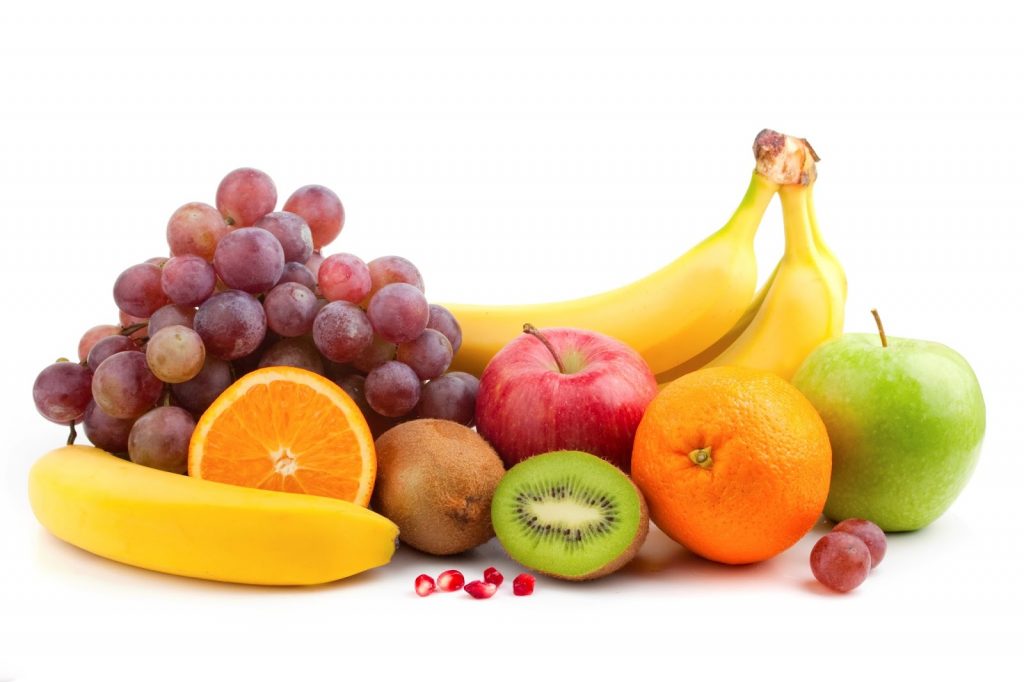
Fresh fruit
Grab that orange or that apple before you go for their juiced versions. Whole fruits have a lot more crucial nutritional value than juices do. You want to chew your fruit, as they contain fiber, vitamins, and more good stuff that helps your body absorb it all better. Juices tend to be more sugar and water than anything else, so they go straight to your bloodstream and wear you out quicker.
Chicken
Protein is critical for singers. It fills us up, and gives us the energy we need to keep singing for a long time. Chicken is lean protein. It will fill you up, burn longer, and keep your vocal cords from being overwhelmed with fat and oils.
Fish
Just like chicken, fish is a lean source of protein. Baking or broiling fish in the oven allows you to use less oil than frying, and while it’s cooking you’ll have time to get some fresh veggies ready on the side.
Vitamin A
Foods that are high in vitamin A help keep your mucus membranes nice and healthy. You’ll find vitamin A in yellow veggies like sweet potatoes and squash, or in fruits such as mangos, melon and peaches. It’s also in dark leafy greens like spinach and kale. You can get your protein as well as your vitamin A from eggs and meat.
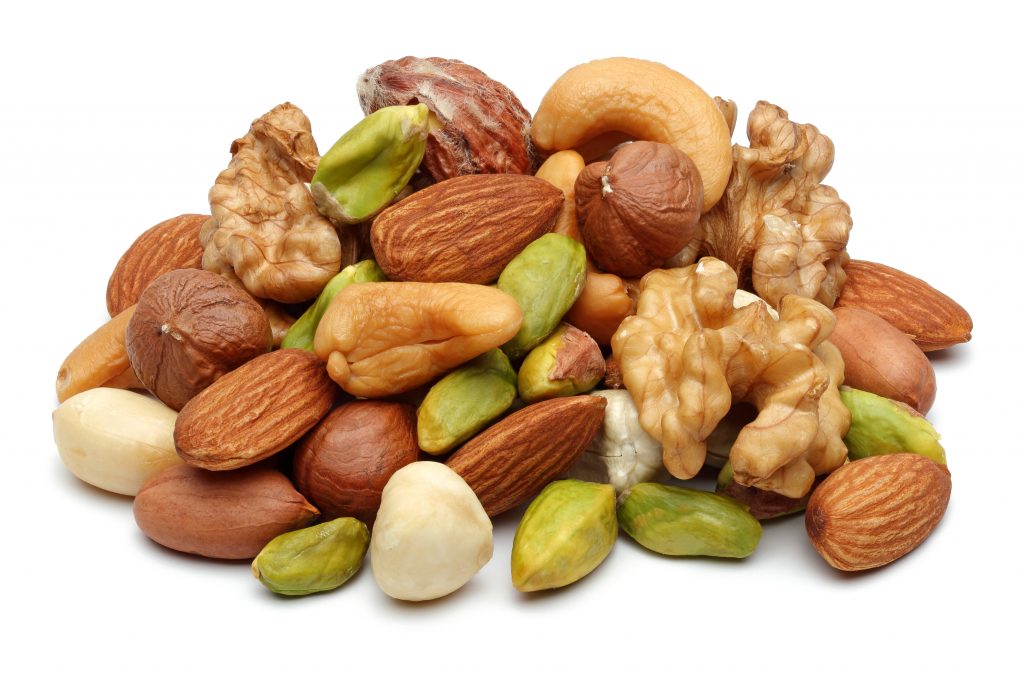
Nuts
Nuts are a great snack for singers to have on hand at shows. Opt for unsalted or lightly salted options, if possible. And be sure to wash them down with a swig of room temperature water to keep the salt from drying out your throat.
Room temperature water
So, this might sound a bit boring, but it’s honestly the best thing you can do for your voice. For some, it might be an acquired taste (after 10+ years drinking it myself, I now prefer room temp!). Staying hydrated is critical for singers. And unlike ice cold water, room temperature water does not constrict your vocal cords. You may think that a few gulps of water before your first song will be enough to start you out.
But oh, honey. You need you start upping your water intake the day before your show. Many voice teachers and health care professionals have told me over and over again, “You’re not fully hydrated until your urine is clear.” It’s maybe a little extreme, but as a goal it’ll help keep you thinking about water. Strive for no yellow, my friends.
Peanut butter
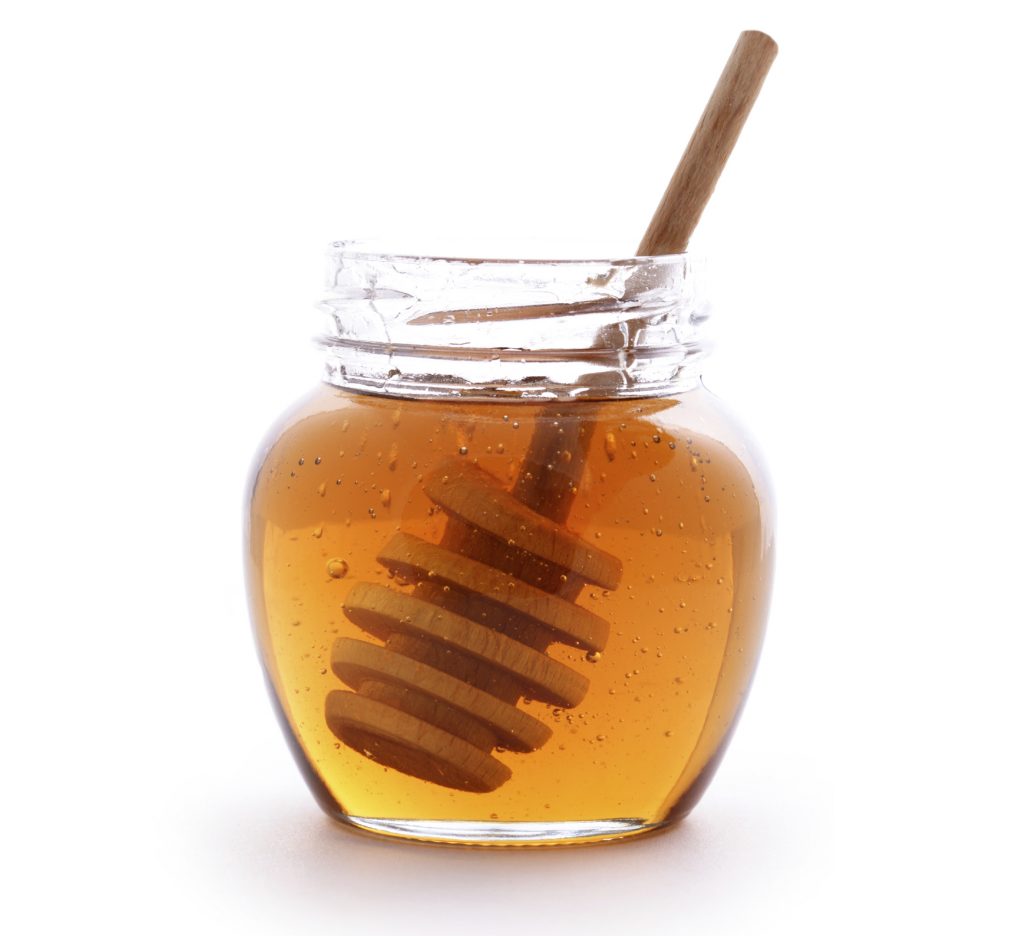
A good, old fashioned PB ‘n’ J (with banana!) is a great breakfast or lunch meal on show days. Go for natural peanut butter, or anything with less sugar and salt than conventional. The protein will help you stay full, and a little bit of sugar from the jam and carbs from the bread will give you the energy to get through a long performance.
Honey
A small spoonful of honey in your water or decaf tea can help coat and soothe your throat. It’s nice first thing in the morning on show days, or as the last thing you drink at night after performing. Honey is still mostly sugar, so don’t go too crazy with it. But it’s uniquely good at preventing and soothing vocal strain, and it’s got antibacterial and antimicrobial qualities, so it can help keep the bad, sore-throat bugs away.
Decaf teas containing licorice root
This might be the one thing out there that will actually help improve your voice. It’s called a demulcent. Licorice root forms a protective layer over the tissues in your throat, thus preventing irritation in your mucus membranes. Vocally, it gives you a lot of flexibility and enhances what you already do. Make it hot, then cool it down to room temperature with 1 or two ices cubes before drinking.
Don’t stop here!
Continue learning with hundreds of lessons on songwriting, mixing, recording and production, composing, beat making, and more on Soundfly, with artist-led courses by Ryan Lott, Com Truise, Jlin, Kiefer, RJD2, and Kimbra: Vocal Creativity, Arranging, & Production.
